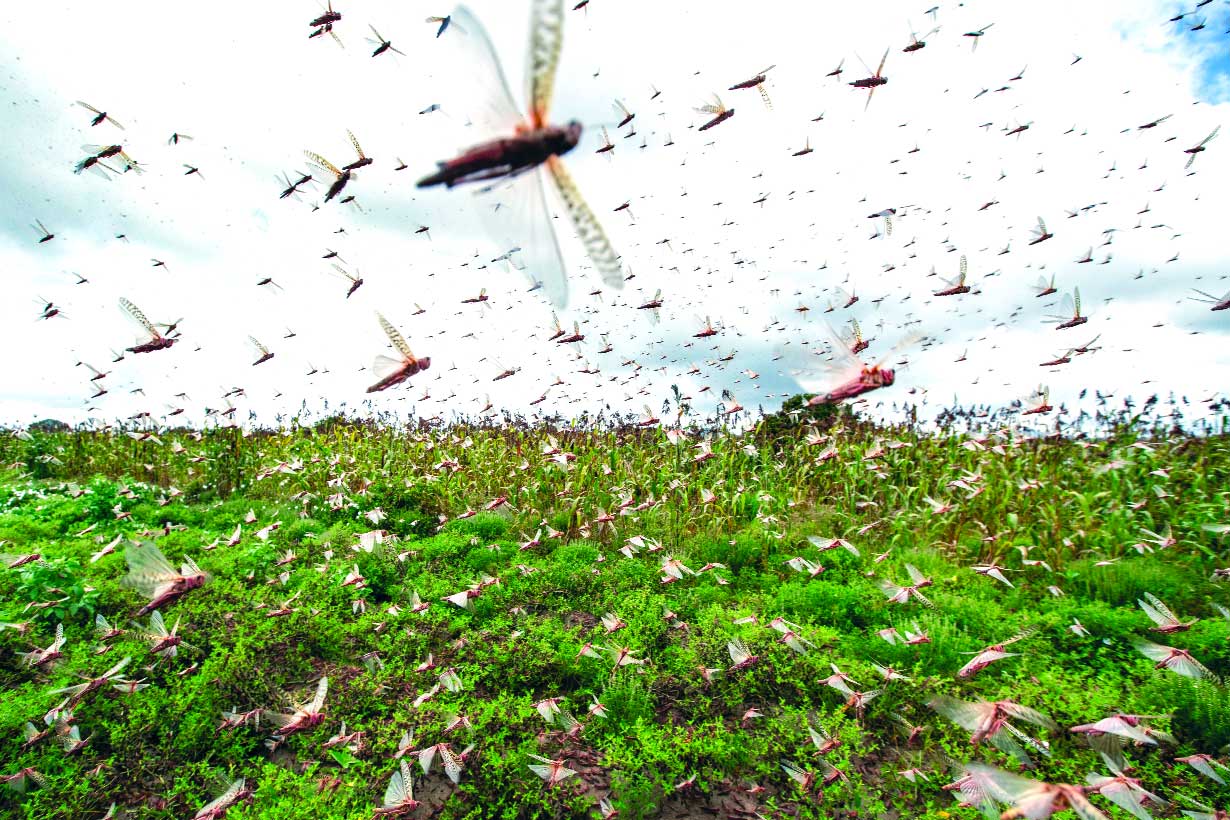Pak declares national emergency; till now locusts have ruined 4L ha crops in India
With Pakistan declaring a national emergency on Saturday, the locust outbreak in India is likely to intensify in the coming months.
The Locusts Warning Organisation (LWO) of the Ministry of Agriculture estimated that around 3.50-4 lakh hectare crops in various districts of Rajasthan, Gujarat, Punjab and Uttar Pradesh have been affected in 2019-20. The damage caused by locust attacks in 2019-20 is believed to be one of the worst in India. Crops of mustard, cumin and wheat have been devastated in Rajasthan and Gujarat, affecting lakhs of farmers. In Rajasthan, the worst hit districts are Jaisalmer, Barmer, Jodhpur, Jalore, Hanumangarh, Ganganagar, Bikaner and Sirohi.
South Sudan, Uganda, Oman, Saudi Arabia and Southern Iran, among other countries are also likely to see robust locust attack in the coming months, threatening agriculture-based livelihoods.
According to a report by the Food and Agriculture Organisation of the United Nations (FAO), the locusts are expected to grow over the coming months due to unusual and extreme weather and powerful cyclones.
According to locust warning system, the locusts entered Rajasthan through Pakistan and then spread across Banaskantha, Patan and Mehsana districts in north Gujarat. Currently, locusts were found in Jaisalmer, Barmer, Bikaner, Jalore, Jodhpur, Pali, Sirohi, Sriganganagar of Rajasthan and Banaskantha and Bhuj-Kutch of Gujarat area. Over 3.68 lakh hectare areas have been sprayed so far in Rajasthan, Gujarat, Punjab and Uttar Pradesh.
The locust warning system falling under the Agriculture Ministry has blamed Pakistan for this year’s attack, saying it failed to conduct control operations successfully. “Ecological conditions are not favourable for locust breeding in summer.
However, the incursion locusts across the border is still continuing. If Pakistan had taken proper control measures, the breeding of locusts could have been stopped, it said. Due to a longer monsoon in India, the locusts got a favourable environment to breed,” officials said.
“Adult locust swarms can fly up to 150 km (93 miles) a day with the wind and adult insects can consume roughly their own weight in fresh food per day. A very small swarm eats as much in one day as about 35,000 people. If allowed to breed unchecked in favourable conditions, locusts can form huge swarms that can strip trees and crops over vast areas,” officials added.
According to the FAO report, the locust swarms have attacked vast areas of the region. “For example in Kenya, a single swarm covered an area 40km by 60km, able to consume as much food in a single day as 85 million people, while in Ethiopia swarms have covered more than 429 km 2. Unusual weather conditions last year contributed to the swarm, especially the widespread heavy rains across the Horn of Africa since October 2019. Across the region the October to mid-November rainfall was up to 300 per cent above average; in Kenya, the rainfall was up to 400 per cent higher than average,” it said.
Locusts thrive in wet conditions, and outbreaks often follow floods and cyclones. Heavy rain leads to growth of vegetation in arid areas, providing locusts with the conditions needed to develop and reproduce, according to the World Meteorological Organization (WMO).


























